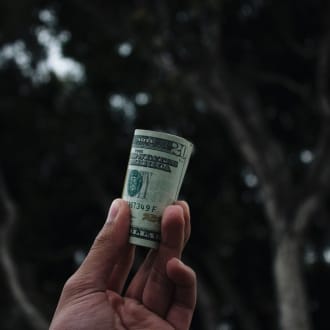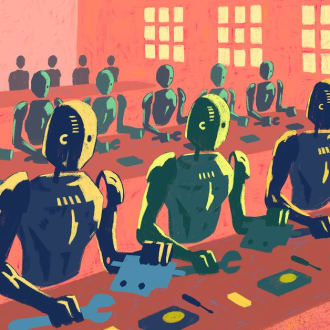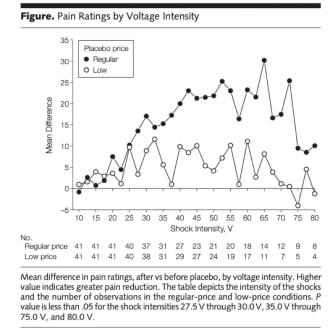
The Best Articles in Economy
The most useful articles and videos in Economy from around the web, curated by thought leaders and our community.
Refind focuses on timeless pieces and updates the list whenever new, must-read articles or videos are discovered.
Top 5 Economy Articles
At a glance: these are the articles that have been most read, shared, and saved in Economy by Refind users in 2024 so far.
Videos
Watch a video to get a quick overview.
Game theory can explain humanity’s biggest problem
Harvard professor Steven Pinker explains that everyone suffers from this rationality error.Subscribe to Big Think on YouTube ► https://www.youtube.com/channe...
The REAL Reason Unemployment is So Scary
WTF is Unemployment?Get a 4-week trial, free postage, and a digital scale at https://stamps.com/johnnyharris. Thanks to Stamps.com for sponsoring this video!...
How Working Hours May Be a Recession Indicator
Employees are actually working fewer hours as hiring booms, which could be a sign of incoming layoffs—and a possible recession. The current average number of...
(11) The Future of Capitalism: From PROFIT to PURPOSE
Reforming, not eliminating, capitalism is vital for our future. Learn about the power of leadership in restoring faith in the system, building trust up and d...
Tipping, Explained: Why Two-Thirds of Americans View It Negatively
You’re being asked to tip more and more places today. If you’re annoyed, you’re not alone. A survey by Bankrate found a third of people are annoyed by those ...
What is ...?
New to Economy? These articles make an excellent introduction.
What Is A Recession? Everything You Need To Know
Forget everything you think you know about the term at a time when fears about the first contraction since the coronavirus pandemic swirl.
An Introduction to AI and Economics
So far, the adoption rate of methods of artificial intelligence and machine learning (AI/ML) has been quite uneven across the economics profession. The uptake of these methods has been heavily…
How to ...?
How to Create Real Housing Affordability, With Dignity
The lessons of New Town at St. Charles.
How to Make Guaranteed Income Work
As more and more cities and nonprofits implement cash-grant “guaranteed income” programs, it is important to keep some critical program design elements in mind.
How to Get Anyone to Do Anything (Ep. 463)
The social psychologist Robert Cialdini is a pioneer in the science of persuasion. His 1984 book Influence is a classic, and he has just published an expanded and revised edition. In this episode of…
«the seven psychological levers that bewitch our rational minds and lead us to buy, behave, or believe without a second thought.»
How to actually give people free money: The messy reality of UBI
With universal basic income (UBI) on everyone's lips, the process of reliably and consistently transferring cash remains surprisingly complex.
Trending
These links are currently making the rounds in Economy on Refind.
The Rise and Fall of the Trad Wife
Alena Kate Pettitt helped lead an online movement promoting domesticity. Now she says, “It’s become its own monster.”
Capitalism Can't Solve Climate Change
If we continue to see the private sector as our savior from climate catastrophe, we'll continue to fail.
Zambians Feel the Personal Consequences of Climate Change—and Dream of a Sustainable Future
Zambia, like its southern African neighbors, depends on rain for its food, energy and economy. But it hasn’t gotten enough this year, and likely won’t in the future, a victim of a climate crisis it…
Why the price of chocolate exploded: How climate change drives inflation
Chocolate prices are soaring — and believe it or not, climate change is the big reason why
Short Articles
Short on time? Check out these useful short articles in Economy—all under 10 minutes.
The Barcode Engineered Its Own Downfall
For decades, the tiny symbol has been the plumbing of global capitalism. It might finally be replaced.
Will the Global Economy Keep Growing in the Coming Years?
On a personal level, knowing and understanding the trends of the global economy can help us decide our careers, finances, and investments.
How to Spot Corporate Bullshit ❧ Current Affairs
A new book shows that the same talking points have been recycled for centuries, to oppose every form of progressive change.
Compounding Optimism
Let me share a little theory I have about optimism, and why progress is so easy to underestimate. I’ll explain it in four parts. A crocodile in Costa Rica was found pregnant recently – and she did it…
«What’s relevant to a society is how well people are communicating their ideas, and how well they’re cooperating, not how clever the individuals are»
Long Articles
These are some of the most-read long-form articles in Economy.
What If Money Expired?
A long-forgotten German economist argued that society and the economy would be better off if money was a perishable good. Was he an anarchist crank or the prophet of a better world?
«Money is abstract, absurd. It’s a belief system, a language, a social contract. Money is trust. But the rules aren’t fixed in stone.”»
How China took over the world’s online shopping carts
Chinese e-commerce platforms like Shein, Temu, and TikTok Shop are going global with big ambitions.
Against Automaticity
An explanation of why tricks like priming, nudge, the placebo effect, social contagion, the “emotional inception” model of advertising, most “cognitive biases,” and any fiel…
A surprisingly radical proposal: Make people happier — not just wealthier and healthier
We finally have good data on what makes people happy. Why are we afraid to use it?
How not to be fooled by viral charts
Part 1: How to spot misinformation, mistakes, and meaningless data
Thought Leaders
We monitor hundreds of thought leaders, influencers, and newsletters in Economy, including:
What is Refind?
Every day Refind picks the most relevant links from around the web for you. Picking only a handful of links means focusing on what’s relevant and useful.
How does Refind curate?
It’s a mix of human and algorithmic curation, following a number of steps:
- We monitor 10k+ sources and 1k+ thought leaders on hundreds of topics—publications, blogs, news sites, newsletters, Substack, Medium, Twitter, etc.
- In addition, our users save links from around the web using our Save buttons and our extensions.
- Our algorithm processes 100k+ new links every day and uses external signals to find the most relevant ones, focusing on timeless pieces.
- Our community of active users gets the most relevant links every day, tailored to their interests. They provide feedback via implicit and explicit signals: open, read, listen, share, mark as read, read later, «More/less like this», etc.
- Our algorithm uses these internal signals to refine the selection.
- In addition, we have expert curators who manually curate niche topics.
The result: lists of the best and most useful articles on hundreds of topics.
How does Refind detect «timeless» pieces?
We focus on pieces with long shelf-lives—not news. We determine «timelessness» via a number of metrics, for example, the consumption pattern of links over time.
How many sources does Refind monitor?
We monitor 10k+ content sources on hundreds of topics—publications, blogs, news sites, newsletters, Substack, Medium, Twitter, etc.
Who are the thought leaders in Economy?
We follow dozens of thought leaders in Economy, including Mariana Mazzucato, Tim Harford, Annie Lowrey, Freakonomics, Harvard Business Review.
Missing a thought leader? Submit them here
Can I submit a link?
Indirectly, by using Refind and saving links from outside (e.g., via our extensions).
How can I report a problem?
When you’re logged-in, you can flag any link via the «More» (...) menu. You can also report problems via email to hello@refind.com
Who uses Refind?
450k+ smart people start their day with Refind. To learn something new. To get inspired. To move forward. Our apps have a 4.9/5 rating.
Is Refind free?
Yes, it’s free!
How can I sign up?
Head over to our homepage and sign up by email or with your Twitter or Google account.
Keep Learning
Learn something new, guided by experts. Deep Dives are carefully hand-curated series of time-tested articles and videos from around the web.
Get the big picture on your favorite topics.




















